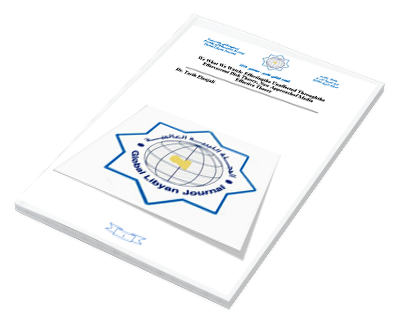We What We Watch Effectingthe Unaffected Throughthe Effervescent Disk Theory, New Approachof Media Effective Theory
DOI:
https://doi.org/10.37376/1570-000-012-007Keywords:
effervescent disk theory, selective exposure, media dependency, Libyan students.Abstract
This study examines a new media effective theory was developed by the author; it is called
“The Effervescent Disk Theory” (EDT). The theory main goal is to affect the unaffected
audience who is either not exposing to a particular message or do not show interest in it. EDT
suggests melting down messages that means to be affected within the media materials which
are selected willingly by the audience themselves. A certain procedures to test EDT hypotheses
were taken and illustrated in this study. A sample of 342 respondents (males & females) was
collected from Tripoli University in Libya during the academic year 2013-2014. The
designated sample is representing students who were failing to pass the English module for
beginners’. This study aims to change the students’ negative notion about the importance of
learning English, and to put their new idea into action. The theory seeks to affect audience
cognition, emotions, and behaviors. EDT was applied in the present study alongside the media
dependency theory. EDT hypotheses were confirmed, study results denoted that 73.6
percentages of the students responded positively and passed their English exam for beginners
after being exposed selectively to their favorite TV program that contains dissolved messages
about the importance and vitality of learning English language.
Downloads

Downloads
Published
How to Cite
Issue
Section
License
Copyright (c) 2021 Global Libyan journal

This work is licensed under a Creative Commons Attribution-NonCommercial-NoDerivatives 4.0 International License.




